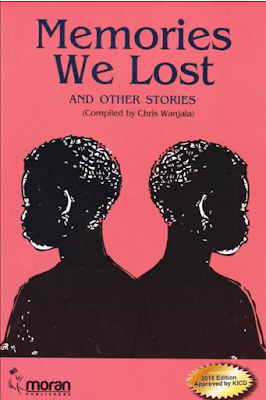STONES BOUNCE ON WATER – BY DILMAN DILA
Characters
1. Meg (a native married to Joe Paulson)
2. Joe Paulson (Meg’s husband)
3. Winnie Hoodge
4. Peter (Winnie’s husband)
5. Tim Collins (Winnie’s cousin), 35 years old
6. Chelsea Creole (Winnie’s business partner)
7. Simon(cook), 60 years old – narrator
8. Opita (porter)
9. Okello (guard)
10. Sergeant Pascal Kivumbi
11. John (Joe's son)
12. Simon’s (unnamed son)
Focus
· Hypocrisy
· Betrayal/mistrust
· Dishonesty
· Greed
Stones Bounce on Water is a story about the futility of betrayal and mistrust. It is built around the mystery that shrouds the murder of Winnie Hoodge.
From the onset, Winnie is suspicious that someone wants her
dead. She is paranoid and suspects everyone including her husband Peter, her
cousin Tim, her business partner Chelsea and the Paulsons, who host the four
visitors.
Dila explores how mistrust and suspicion can ruin a relationship when Chelsea remarks that she will spend her next honeymoon in
Uganda. Winnie scowls and almost drops her cup of tea. This can be attributed
to the fact that she suspects that there is something between Chelsea and her
husband Peter. She believes they are seeing each other behind her back. This
later turns out to be true when Peter marries Chelsea after Winnie is dead.
When a fire cracker goes off and scares the members of the party to the bone, Winnie remains skeptical saying she doesn’t believe it. She says someone is trying to kill her.
Winnie runs a charity that has both a school and health centers in Uganda. She started and funded the project until it blossomed into a lucrative business.
She suspects that Joe and Meg want her dead so that they can take over, with Joe as the chairperson, a position currently held by Winnie. Joe and Meg are in the partnership for the money and not to help the poor. The charity fetches a lot of tax-free money.
Winnie also suspects Chelsea wants to assume the sole ownership of Gala supermarket they co-own.
She thinks Tim and Peter
want her dead so that they can inherit her money. Tim is the only relative she
has.
After Winnie inadvertently sips from Meg’s cup of
tea, she screams, “Someone is trying to
kill me!” This is because the tea tastes funny. Joe, Meg’s husband
clarifies that it’s because the tea is laced with alcohol. Meg secretly pays
Simon the cook to discreetly mix her tea with a potent intoxicant Waragi. She tries to conceal the fact
that she is hooked on alcohol from her husband. She is stuck in the habit ostensibly
because of dealing with business partners who do not trust her and her husband.
Winnie also suspects that Tim is conspiring with the
cook to kill her. That he would poison her food and they will then dump her
body in a pond. This makes Simon the 60 year old cook to quit his job alongside
two other younger cooks who were still struggling to pay bride price for their
wives.
Winnie goes missing and it is suspected that she might have been killed. The matter is reported to Sergeant Pascal Kivumbi who starts piecing together pieces of evidence while trying to unravel the mystery. He finds some mud on the stairs. He figures out that the window to Winnie’s room could be locked from outside.
When he talks to the night guard Okello, he reveals that he never sleeps but was drugged last night and he fell asleep from 4pm to 6am.
At the pond, they found footprints going in and coming out of the pond and
tracks indicating dragging of something heavy.
Eventually Winnie’s body is found in the pond when
her toe sticks out from the slimy water. Winnie was strangled, not poisoned.
This means Simon the cook is off the hook.
Simon suspects Okello the guard fell unconscious after being shot by a dart gun. The dart gun is found in the pond by British investigators, Scotland Yard.
This is after the story of Winnie’s murder is highlighted
by the international press including BBC. It also turns out that Tim contacted
a Kenyan poacher shortly before he came to Uganda.
The futility of the betrayal comes out after the murder case is closed after remaining unresolved. Two years after Winnie’s death, negative publicity forces the Paulsons to cease the activities of the charity. This means they do not continue drawing monetary benefit.
Winnie's lawyer fights to bar Tim, Peter and Chelsea from inheriting her money and Gala. Peter later marries Chelsea. Tim is the best man. The Paulsons does not attend this wedding.
Tim and Peter
disagree on how to share the spoils following Winnie’s death and end up splitting it. They eventually testify in court against each other.
The mistrust and betrayal caused by materialism, greed
or lack of contentment leads to the loss of Winnie’s life. It, however, doesn’t
pay off. The perpetrators’ efforts are futile.
In your opinion, who murdered Winnie and what was the motive?
KCSE ESSAYS ON STONES BOUNCE ON WATER
We gain nothing when we betray others. Write an essay in support of this statement, basing your illustrations on Stones Bounce on Water.
NEXT: MEMORIES WE LOST ANALYSIS
See analyses of all stories in Memories we Lost here.











